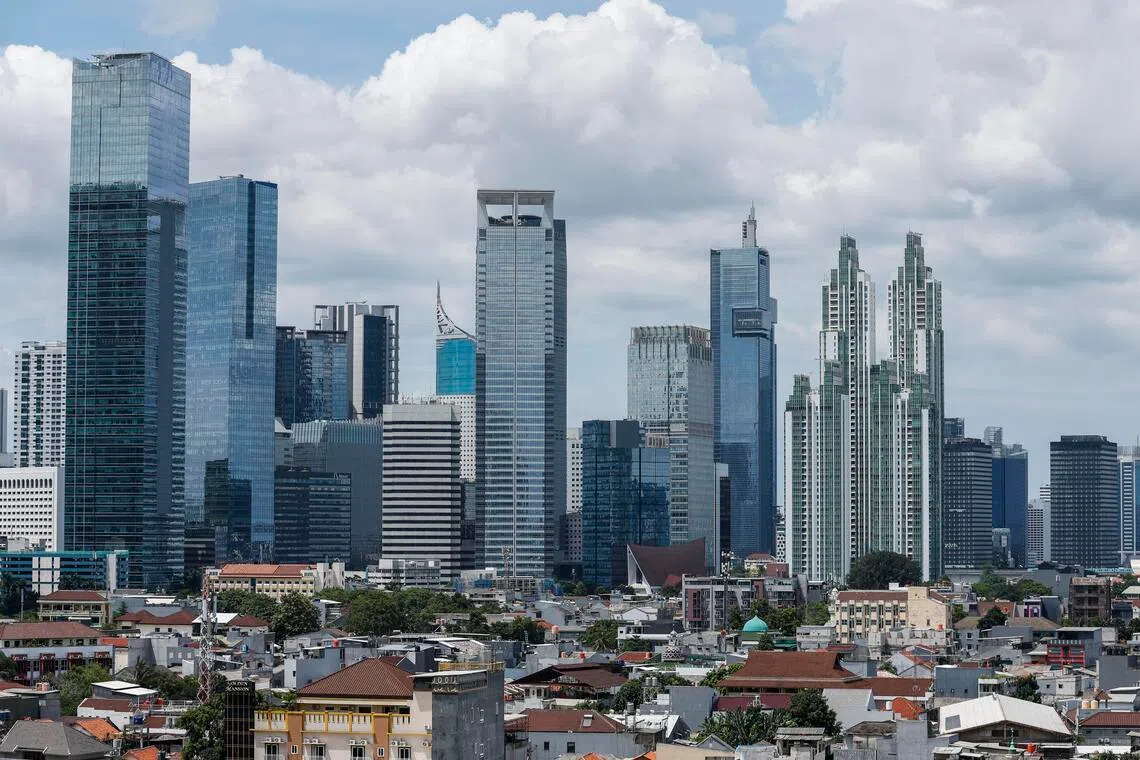Capital-hungry Indonesia to reduce hurdles for foreign investors
Sign up now: Get ST's newsletters delivered to your inbox

Indonesia is poised to streamline measures to draw more foreign investors and banks into emissions-cutting projects.
PHOTO: EPA
Follow topic:
JAKARTA - Indonesia is poised to streamline measures to draw more foreign investors and banks into emissions-cutting projects, with a forthcoming white paper laying out steps to attract the private capital it needs to meet its climate goals.
The Indonesian authorities have finalised the governance structure and implementation plan for a new body that will align the country’s fragmented regulatory frameworks and policies, according to a copy of the paper seen by Bloomberg News. The Sustainable Finance Committee will likely have about 20 members, including senior officials from the Finance Ministry, the Financial Services Authority and Bank Indonesia.
The committee, which the Finance Ministry will oversee as coordinator, was signed into law in 2023. Its members are expected to be finalised in the first quarter of 2026, and it will have a secretariat and thematic working groups to carry out its mandate.
The body is intended to help investors better understand regulations, sector incentives, project pipelines and de-risking instruments for deals in what is “a huge and quite investable market,” said Mr Simon Horner, managing director for external affairs at Green Finance Institute, an advisory body that is working with Indonesian officials on the platform.
Investors tell us “they need stronger, more credible, more transparent institutions to commit capital to the Indonesian market”, he added. “They don’t always understand how the political system works, the role of the domestic development finance institution, the involvement of state-owned banks in transactions,” he said.
In Indonesia’s latest climate plan – known as a nationally determined contribution (NDC) – lodged with the United Nations in October, emissions are projected to peak in 2030 under two key economic growth scenarios.
Like other emerging economies, the South-east Asian nation has limited fiscal room to spend on climate measures and is struggling to attract capital from developed markets. In its NDC, Indonesia said it needs at least US$472.6 billion (S$613 billion) in investment to achieve its climate targets.
Between 2018 and 2023, the government spent 702.9 trillion rupiah (S$55 billion) on climate-related initiatives, according to the Finance Ministry.
The Just Energy Transition Partnership (JETP), a US$20 billion commitment from rich nations to help shutter coal plants and promote clean energy, has so far led to about US$3 billion of approved financing and four supported projects, according to figures displayed on its official website. The US pulled out of JETP in March.
Indonesian President Prabowo Subianto has set a target to transition the coal-dependent country entirely to renewable energy by 2035. The government has also highlighted six sectors including food, water, energy and health as “national adaptation priorities” as the US$1.4 trillion economy faces increased risks of extreme rainfall, droughts and heat waves due to climate change. BLOOMBERG

